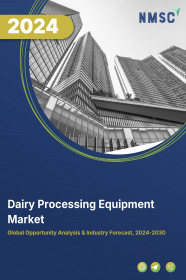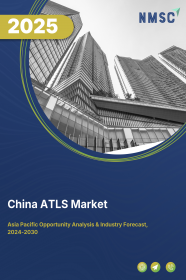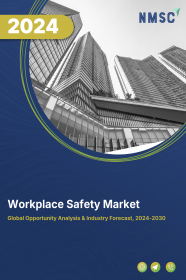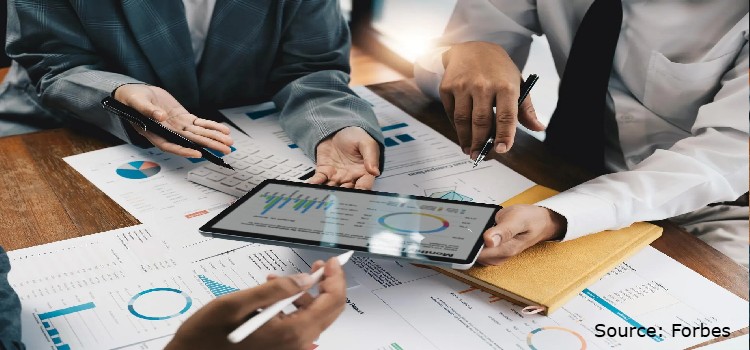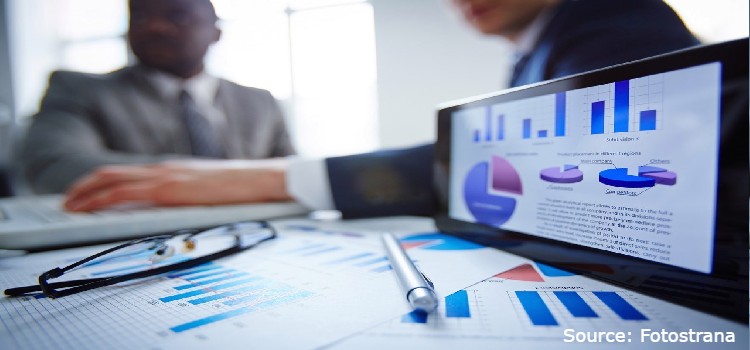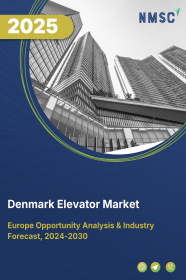
Denmark Elevator Market by Type (Passenger Elevator, and Others), by Technology (Traction and Hydraulic), by Service (New Installation, and Others), by Capacity (Less than 1500 KG, and Others), by Speed (Less than 1 M/S, and Others), by Deck Type (Single Deck and Double Deck), by Designation Control (Smart and Conventional), by Door Type (Automatic and Manual), by Operation (Low-Rise, and Others), by Application (Residential, and Others)- Opportunity Analysis and Industry Forecast, 2024 –2030
Industry: Construction & Manufacturing | Publish Date: 01-Mar-2025 | No of Pages: 167 | No. of Tables: 129 | No. of Figures: 74 | Format: PDF | Report Code : CM1627
US Tariff Impact on Denmark Elevator Market
Trump Tariffs Are Reshaping Global Business
Market Definition
Denmark Elevator Market size was valued at USD 351.16 million in 2023, and is predicted to reach USD 558.10 million by 2030, at a CAGR of 5.8 % from 2024 to 2030. The elevator market is a dynamic sector encompassing the conception, production, installation, and maintenance of elevator systems. From conventional traction elevators to advanced smart solutions, this market offers a diverse range of vertical transportation options tailored to meet various building and infrastructure requirements. Key stakeholders include manufacturers, suppliers, contractors, architects, building owners, and facility managers.
Manufacturers continuously innovate to enhance elevator performance, safety standards, and sustainability practices, while suppliers provide essential components for system assembly. Sustainability considerations, such as energy efficiency and material recyclability, are increasingly integrated into elevator design and operation, aligning with broader environmental goals and sustainable building principles. Consequently, the elevator market plays a pivotal role in vertical mobility, enhancing functionality, accessibility, and sustainability across global buildings and urban environments.
Rising Construction Sector Fuels the Expansion of the Elevator Market
The rapid pace of urbanization in Denmark is reshaping city landscapes and infrastructure requirements, necessitating advanced technological solutions to address evolving urban challenges effectively. As urban centers become more densely populated, there is a growing demand for elevators equipped with cutting-edge technologies that enhance efficiency, safety, and user experience. The integration of Internet of Things (IoT) technology and smart connectivity features is revolutionizing the elevator industry, enabling real-time monitoring, predictive maintenance, and enhanced security protocols. IoT-enabled elevators can communicate vital performance data to maintenance teams, allowing for proactive servicing and minimizing downtime.
Additionally, smart elevator systems can optimize traffic flow, reduce waiting times, and improve energy efficiency by analyzing user patterns and adjusting operational parameters accordingly. Furthermore, the emergence of artificial intelligence (AI) and machine learning algorithms is driving innovation in elevator design and functionality. AI-powered elevator systems can anticipate user needs, optimize elevator routing algorithms, and adapt to changing traffic patterns dynamically. This level of automation and intelligence not only enhances passenger convenience but also contributes to overall urban mobility and efficiency.
In the context of Denmark's urbanization trend, the adoption of advanced technological solutions in elevators aligns with the country's vision of creating smart, sustainable cities. As urban environments become increasingly interconnected and digitally driven, the demand for technologically advanced elevators is expected to escalate, presenting lucrative opportunities for manufacturers and service providers at the forefront of innovation.
Rapid Urbanization Drives the Growth of the Market
The significant growth in urbanization propels the growth of the market as the rising urbanization underlines the need for efficient vertical transportation solutions, and also highlights the growing emphasis on sustainability within urban environments. With Denmark's commitment to environmental conservation and green initiatives, there's a significant push towards integrating sustainable practices across various sectors, including construction and infrastructure development. In this context, the elevator market is witnessing a notable shift towards eco-friendly and energy-efficient elevator systems.
The Danish government's stringent regulations and policies promoting energy conservation and carbon neutrality have catalyzed innovation within the elevator industry. elevator manufacturers are increasingly focusing on developing elevators equipped with energy-efficient technologies such as regenerative drives, LED lighting, and advanced control systems to minimize energy consumption and reduce carbon emissions. Moreover, sustainable materials and designs are being prioritized to ensure that elevators contribute positively to the overall sustainability goals of urban developments.
As sustainable development remains a key priority for Denmark, the demand for environmentally responsible elevator solutions is expected to surge. elevator companies that align with these sustainability objectives and offer innovative, eco-friendly products are likely to gain a competitive edge in the thriving Danish elevator market.
High Initial Costs Obstruct Market Growth Within the Region
The significant costs linked to installing, maintaining, and upgrading elevators present obstacles to market growth. From the initial installation expenses to the continuous maintenance fees and the necessity for upgrades to comply with safety standards and improve energy efficiency, building owners face substantial financial burdens. These challenges are especially daunting for owners in economically disadvantaged areas or older buildings. Consequently, the elevated costs associated with elevators hinder market expansion across diverse regions.
The Combination of Artificial Intelligence (AI) in Elevators Paves the Way for Future Opportunities for Growth
The integration of AI-driven predictive maintenance into the elevator sector represents a highly promising opportunity, fundamentally transforming maintenance and operational methodologies through AI advancements. By scrutinizing data collected from elevator sensors, AI algorithms can forecast maintenance needs in advance, reducing downtime and maximizing elevator accessibility. This proactive approach not only extends the lifespan of elevator components but also reinforces safety by anticipating unforeseen malfunctions and streamlines resource allocation, leading to substantial cost savings for elevator firms. Additionally, well-maintained elevators enhance user satisfaction, thereby enhancing the overall experience for building occupants and visitors. Embracing AI-driven predictive maintenance enables elevator companies to remain competitive and uphold service excellence within an ever-evolving market environment.
Competitive Landscape
The Denmark elevator market comprises various market players, such as Otis A/S Hovedkontor, TK Elevator, KONE Corporation, Hitachi Ltd., Mitsubishi Electric Corporation, Schindler Elevatorer A/S, CAMA LIFT ApS, City Elevator A/S, NOS A/S, HOVMAND A/S, V. Guldmann A/S, Minelevator, Alimak, Ningbo Hosting Elevator Co., Ltd., Weidmuller Denmark and others.
Denmark Elevator Market Key Segments
By Type
-
Passenger elevator
-
Freight elevator
-
Others
By Technology
-
Traction
-
Machine Room [MR] Traction
-
Machine Roomless [MRL] Traction
-
-
Hydraulic
By Service
-
New Installation
-
Maintenance
-
Modernization
By Capacity
-
Less than 1500 kg
-
1500 to 2500 kg
-
2501 to 4000 kg
-
More than 4000 kg
By Speed
-
Less than 1 M/S
-
Between 1 to 4 M/S
-
More than 5 M/S
By Deck Type
-
Single Deck
-
Double Deck
By Designation Control
-
Smart
-
Conventional
By Door Type
-
Automatic
-
Manual
By Operation
-
Low-Rise
-
Mid-Rise
-
High-Rise
By Application
-
Residential
-
Commercial
-
Industrial
KEY PLAYERS
-
Otis A/S Hovedkontor
-
TK Elevator
-
KONE Corporation
-
Hitachi Ltd.
-
Mitsubishi Electric Corporation
-
Schindler Elevatorer A/S
-
CAMA LIFT ApS
-
City Elevator A/S
-
NOS A/S
-
HOVMAND A/S
-
V. Guldmann A/S
-
Minelevator
-
Alimak
-
Ningbo Hosting Elevator Co., Ltd.
-
Weidmuller Denmark
REPORT SCOPE AND SEGMENTATION:
|
Parameters |
Details |
|
Market Size in 2023 |
USD 351.16 Million |
|
Revenue Forecast in 2030 |
USD 558.10 Million |
|
Growth Rate |
CAGR of 5.8 % from 2024 to 2030 |
|
Analysis Period |
2023–2030 |
|
Base Year Considered |
2023 |
|
Forecast Period |
2024–2030 |
|
Market Size Estimation |
Million (USD) |
|
Growth Factors |
|
|
Companies Profiled |
15 |
|
Market Share |
Available for 10 companies |
|
Customization Scope |
Free customization (equivalent up to 80 working hours of analysts) after purchase. Addition or alteration to country, regional, and segment scope. |
|
Pricing and Purchase Options |
Avail customized purchase options to meet your exact research needs. |

















 Speak to Our Analyst
Speak to Our Analyst



